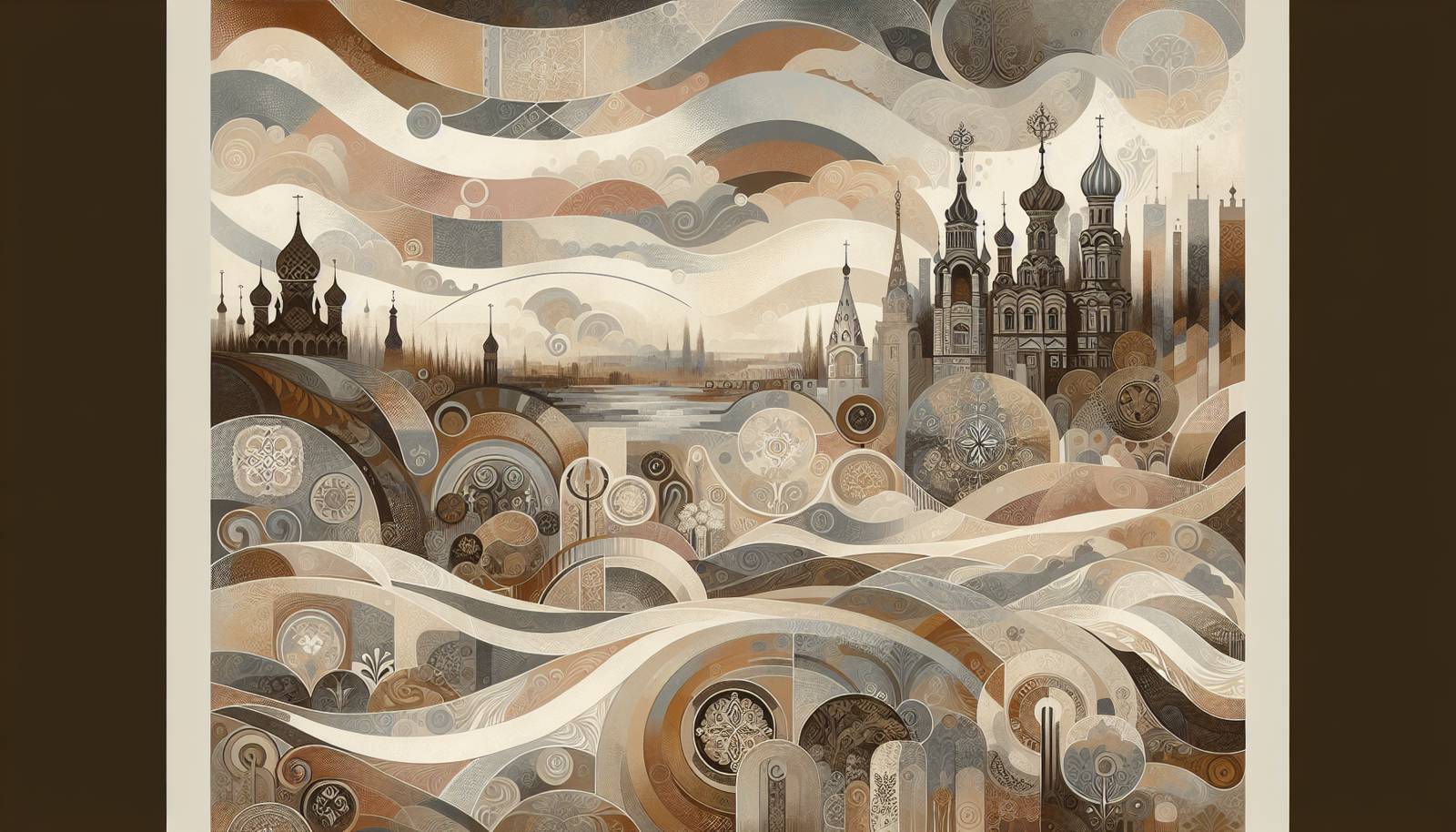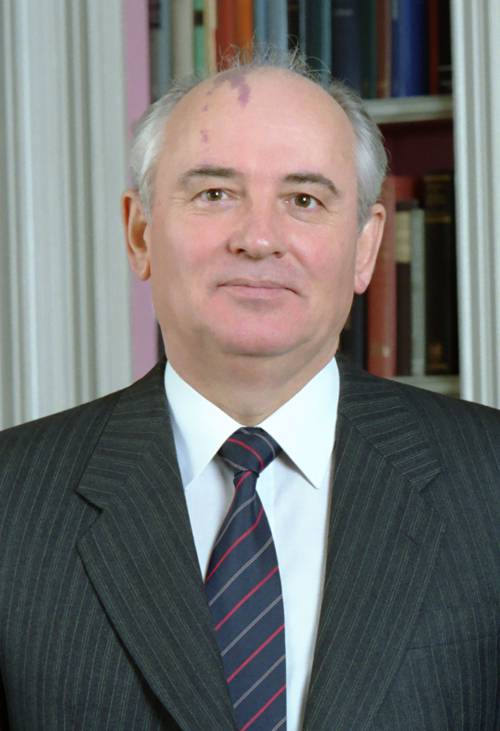
FAQ About Mikhail Gorbachev

Who was Mikhail Gorbachev?
Mikhail Gorbachev was the last leader of the Soviet Union, serving as the General Secretary of the Communist Party from 1985 until its dissolution in 1991. Known for his reformist policies such as glasnost (openness) and perestroika (restructuring), Gorbachev played a vital role in ending the Cold War and transforming the Soviet Union's political landscape.

What were glasnost and perestroika?
Glasnost and perestroika were revolutionary policies introduced by Mikhail Gorbachev during his leadership of the Soviet Union. Glasnost means 'openness' and referred to increased transparency in government institutions and a reduction in censorship. Perestroika means 'restructuring' and was aimed at reforming the Soviet economic and political systems, allowing more market-like practices and a decentralization of economic controls.

How did Gorbachev's policies contribute to the end of the Cold War?
Mikhail Gorbachev's policies of glasnost and perestroika contributed to the end of the Cold War by promoting openness and reform not only within the Soviet Union but also in its relations with other countries. He engaged in diplomatic efforts with Western leaders, including Ronald Reagan, to reduce nuclear arms and improve relations, leading to significant treaties like the Intermediate-Range Nuclear Forces Treaty in 1987. These efforts helped diminish the ideological divide between East and West.

What significant events occurred during Gorbachev's leadership?
During Gorbachev's leadership, several significant events took place, including the implementation of glasnost and perestroika, the dissolution of the Warsaw Pact, the withdrawal of Soviet troops from Afghanistan, and the fall of the Berlin Wall. These changes eventually led to the collapse of the Soviet Union and the end of the Cold War.

Why did Mikhail Gorbachev implement reforms in the Soviet Union?
Mikhail Gorbachev implemented reforms like glasnost and perestroika because he recognized that the Soviet Union's economy was stagnant and its political system needed modernization. He believed that by increasing openness and restructuring the economy, the Soviet Union could become more efficient and less isolated from the global community. The reforms were designed to revitalize the Soviet system but ultimately led to its disintegration.

When did Mikhail Gorbachev become the leader of the Soviet Union?
Mikhail Gorbachev became the leader of the Soviet Union on March 11, 1985, when he was elected as the General Secretary of the Communist Party of the Soviet Union.

How did Gorbachev's leadership end?
Mikhail Gorbachev's leadership ended with the dissolution of the Soviet Union in December 1991. On December 25, 1991, Gorbachev resigned as President of the Soviet Union, officially marking the end of his leadership and the Soviet state itself.

What was Mikhail Gorbachev's early life like?
Mikhail Gorbachev was born on March 2, 1931, in Privolnoye, a rural village in Russia's Stavropol Krai. He grew up during a time of great hardship, including World War II and the Soviet famine. Gorbachev excelled in school and later attended Moscow State University, where he studied law and became involved in Communist Party activities, setting the stage for his future political career.

Did Gorbachev receive any international recognition for his work?
Yes, Mikhail Gorbachev received significant international recognition for his work, most notably being awarded the Nobel Peace Prize in 1990. The Nobel Committee honored him for his leading role in the peace process, which included reducing East-West tensions and promoting nuclear disarmament, thus contributing to the end of the Cold War.

How did Gorbachev's policies affect the Soviet Union's economy?
Gorbachev's policies, particularly perestroika, aimed to revitalize the Soviet Union's stagnant economy by introducing elements of market economics and reducing central control. However, the transition was challenging, leading to economic instability, shortages, and a decline in standard of living for many citizens. While the intention was to revive the economy, the societal upheaval contributed to the USSR's eventual dissolution.

Which political figure collaborated with Gorbachev to end the Cold War?
One of the key political figures who collaborated with Mikhail Gorbachev to end the Cold War was Ronald Reagan, the then-President of the United States. The two leaders worked together through diplomatic negotiations and summits, culminating in the signing of arms reduction agreements and enhancing international trust and cooperation.

What was the impact of glasnost on Soviet society?
The policy of glasnost had a profound impact on Soviet society as it led to a greater freedom of information and expression. It allowed previously censored topics to be discussed openly, including criticisms of the government and Stalin-era atrocities. This openness fostered greater public debate, increased transparency, and ultimately unrest that contributed to the demands for more radical reforms.

How did perestroika change the Soviet political system?
Perestroika aimed to change the Soviet political system by introducing more democratic processes and greater decentralization of power. This included allowing multi-candidate elections and granting more autonomy to Soviet republics, which weakened the Communist Party's absolute control and inadvertently encouraged movements for independence across various Soviet states.

What led to the collapse of the Soviet Union?
The collapse of the Soviet Union was influenced by several factors, including economic stagnation, political dissent, and nationalistic movements within the republics. Gorbachev's policies of glasnost and perestroika, while intended to rejuvenate the Soviet system, instead accelerated demands for independence, causing political instability and eventually leading to the dissolution of the USSR in 1991.

What role did Mikhail Gorbachev play after the collapse of the Soviet Union?
After the collapse of the Soviet Union, Mikhail Gorbachev remained active in global affairs and politics, though he never returned to a major governmental role. He founded the Gorbachev Foundation and the Green Cross International, focusing on promoting democracy and environmental causes. He also engaged in speaking tours and wrote extensively about his experiences and global policy perspectives.

What was the Intermediate-Range Nuclear Forces Treaty?
The Intermediate-Range Nuclear Forces (INF) Treaty was a pivotal arms control agreement signed by Mikhail Gorbachev and U.S. President Ronald Reagan in 1987. The treaty required both countries to eliminate their ground-launched ballistic and cruise missiles with ranges of 500 to 5,500 kilometers, significantly reducing nuclear arsenals and tensions during the Cold War era.

How did Gorbachev's reforms influence Eastern Europe?
Gorbachev's reforms encouraged democratic movements in Eastern Europe by reducing Soviet control over the region. His policies of non-intervention and the promotion of openness inspired revolutions across the Eastern Bloc, leading to the fall of Communist regimes in countries like Poland, Czechoslovakia, and East Germany, contributing to the broader collapse of communist influence in Europe.

What obstacles did Mikhail Gorbachev face in implementing his reforms?
Mikhail Gorbachev faced numerous obstacles in implementing his reforms, including resistance from hardliners within the Communist Party who feared losing power, economic challenges that led to shortages and declining living standards, and rising nationalist movements across the Soviet republics that threatened unity. These issues ultimately complicated his efforts and contributed to the Soviet Union's collapse.

Did Mikhail Gorbachev have any political involvement in Russia post-Soviet Union?
After the dissolution of the Soviet Union, Mikhail Gorbachev engaged in some level of political activity in Russia. He ran for the presidency in 1996 but received only a small fraction of the vote. Gorbachev remained a staunch advocate for democratic reforms and frequently voiced his opinions on Russian politics and international issues through his writings and public appearances.

What is Mikhail Gorbachev's legacy?
Mikhail Gorbachev's legacy is marked by his transformative role in ending the Cold War, promoting peace, and introducing reforms that ultimately led to the dissolution of the Soviet Union. While he is celebrated globally for his efforts towards openness and disarmament, opinions within Russia are mixed, with some viewing him as responsible for economic hardships and the loss of superpower status.
